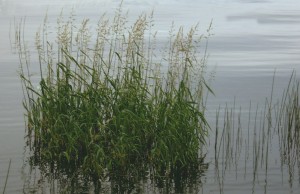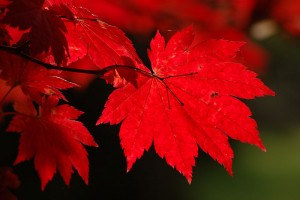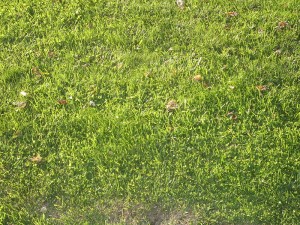This is our second-last post before we wrap things up in the season, so we here at Mower Source are going to offer up some valuable tips for getting your lawn and yard ready for the fall and winter. In this post, we’ll be taking a look at what you can do to prep your home for the fall, and next week we’ll jump ahead a few months and tackle winter.
Ease Up on the Watering
As the mercury drops, your lawn needs less and less water. It’s because the heat in the air evaporates water at a rate relative to the temperature — the hotter it is, the more water gets sucked out and the more needs to go in. So with the temperatures getting cooler, your lawn is able to retain more moisture and doesn’t need as many watering sessions. You can start to cut them in half right now, but pay attention to what the thermometer says and go with that.
Don’t Stop Mowing
While it’s tempting to bundle watering and mowing together, you definitely shouldn’t stop cutting your grass once the weather gets cooler. Your lawn still needs a regular trim to keep it healthy, lush and in good shape for the upcoming seasons. Instead, all you’ll want to do is raise the blade height by half an inch to an inch and let the grass grow just a tad taller.
Keep the Leaves Off Your Lawn
Who doesn’t love the look of brightly colored leaves adorning their lawn? While it’s beautiful to look at, fallen leaves just aren’t so good when they’re down on the ground. They’re heavy, wide and flat, which make for perfect conditions for trapping moisture. And remember what we said in the first paragraph? Too much moisture with not enough heat to evaporate it is bad news, which can cause things like mildew and fungal diseases. It’s just a lot easier to rake them off than try and fix your lawn after the fact — AND still be left with raking your lawn.
Start Planning Your Fertilization
You should really only be fertilizing your lawn once or twice a year, with fall being one of those times. It’s the perfect time in the year where one season segues into another and can really use a boost of nutrients to help it transition. By applying it in the next month or two, you’re enabling the root system to grow deep and strong and get on a good head start for spring. Remember, the better you can prep your grass for the long, cold winter, the better condition it’ll be in to produce awesome grass and plants next year.
Get Rid of Weeds Permanently
There are few people who enjoy sitting on their hands and knees and pulling weeds for hours, but it’s just one of those things that comes along with yard maintenance. In the summer, you might have been able to get away with letting the sun scorch them into oblivion, but the cooler weather means prime feeding time for weeds. They’re grabbing up all that extra moisture and nutrients suddenly in the grass and using it to boost their own root systems, so pull them up from the bottom and apply a good dose of herbicide to ensure they stay away for good.
Make Your Yard a No-Traffic Zone
Think back to every cut, scrape, bruise or break you’ve ever had in your life. Those first few days or weeks after the injury, you had to rest the area gently to allow your body to heal it. The same goes for your lawn, albeit on a less drastic scale. There’s no injury it has to battle back from, but rather it’s a bit like the opposite: when winter hits, it’ll be a bit of a shock to your lawn’s system, so it has to prepare itself in reverse for that event. One way you can help it along is to avoid walking on it, which compacts the grass and prevents water, air and nutrients from going deep underground and feeding the roots.
Fill in Patches and Bare Spots
The last item on this list is to plant seed where there’s no grass so it can settle in and develop roots over the next few months. If your patches or bald spots are caused by bugs or diseases, then you’ll have to take care of those first before planting grass seed, otherwise it won’t take permanently.









